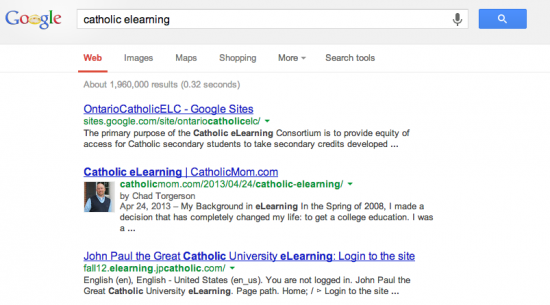As a full-time geek and part-time writer, I have learned over the past few years some basic tips and tricks to getting noticed on the Internet. In my first article of SEO tips, I will begin with one of the most basic concepts: choosing titles.

Many writers like to come up with fun, unique titles that will draw a reader’s attention. This may work for short stories, novels, and even magazines, but does it work for blogs and websites?
Yes and no.
If you have an established reader base, Twitter following, and large number of subscribers, a title with pizzazz might be what entices them to read more. Here’s the problem: that only works if you already have a reader base. But what if you don’t? Will catchy titles bring you new readers?
Not likely.
Let’s give an example. If you wrote an article on saving money, you might name it “The Secret to Fat Piggy Banks.” Now, that’s a fun title. That should draw readers, right?
Unfortunately, search engines, like Google and Bing, only see the words fat piggy banks, so the only people who are going to see your article are those looking for large porcelain swine to stuff pennies in. You’ll be mixed in with a bunch of shopping sites selling trinkets. What good is that?
Here’s the SEO tip: to fix this problem, think like a normal web user. If you wanted to find information about saving money, what would you type in? How about tips to saving money, how to save money quickly, or saving money for college. There’s your article title. That was easy. Choosing titles wisely simply means using keywords from your article.
Of course, those titles were pretty generic, and you would have a difficult time ranking for them. The trick, then, is to be specific. Pick keywords that are unique to what you are writing about.
Another example: I wrote about the use of eLearning in the Catholic Church for this very site. Try searching for the phrase Catholic eLearning on Google or Bing. What do you see?

Amazing!
The secret to Catholic eLearning ranking well is that it is a niche keyword. We could apply the same thing to our first example: stay-at-home tips to saving money. A title like that would begin to narrow down the focus.
Of course, some writers will say that cheap titles like these take the art out of writing. That’s fair.
But who are we writing for? If we are writing for the sake of art, we could just as easily write our thoughts in a journal and stuff it under our bed. Our goal, though, is to communicate a message to our readers, and the title should help us do that.
Different forms of writing call for different types of titles. Read the titles in your local newspaper. Now, compare that to the novels on your bookshelf, or the nonfiction books right next to them. The titles fit the format, pure and simple. If you are writing for the web, then write titles for the web.
Some may still disagree with me. They expect their titles to convey the message. The title is just a hook and cannot share your entire message, so let your content do that. That’s where the value is. Anyone can craft unique titles that draw enough attention for a reader to start an article, but true writers are those that get people to finish it.
Did you finish this article? Good. That means that my generic title didn’t scare you off. And by the way, did you catch the focus of this article? Now what do you think my chances are for ranking with SEO tips would be?
Copyright 2013 Chad R. Torgerson
About the Author

Guest
We welcome guest contributors who graciously volunteer their writing for our readers. Please support our guest writers by visiting their sites, purchasing their work, and leaving comments to thank them for sharing their gifts here on CatholicMom.com. To inquire about serving as a guest contributor, contact editor@CatholicMom.com.



.png?width=1806&height=731&name=CatholicMom_hcfm_logo1_pos_871c_2728c%20(002).png)
Comments